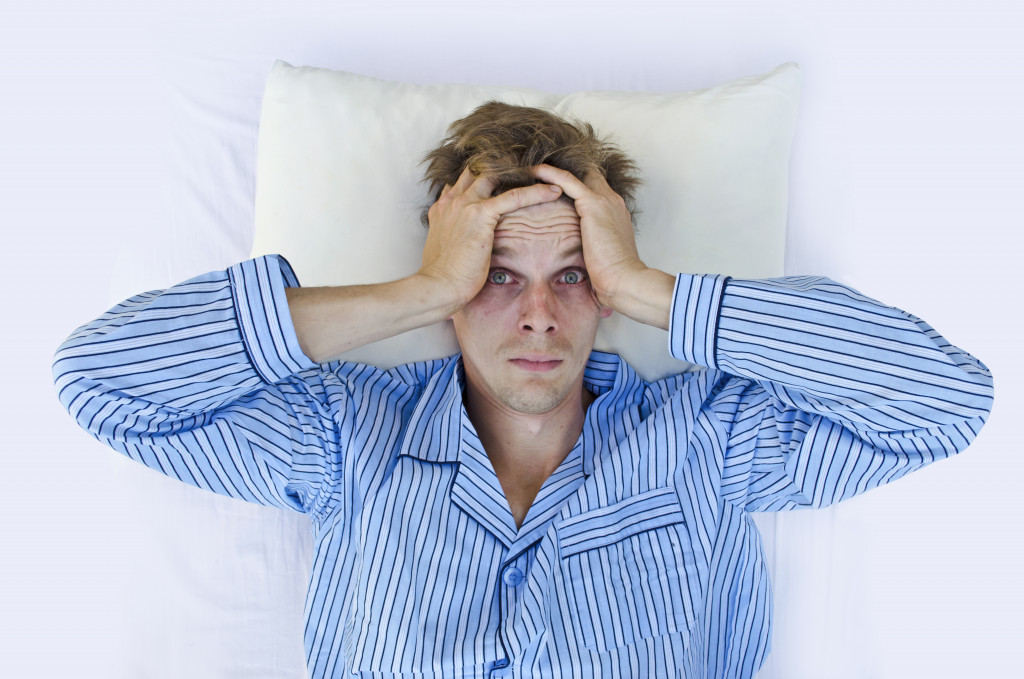Getting a good night’s sleep is essential for everyone. It’s crucial for those who work hard every day and for children who are still growing. But how does sleep affect people, and what are its biological reasons? Here’s what you need to know about sleep.
The Biological Reason Behind Sleep
There are two types of sleep: REM (rapid eye movement) and NREM (non-REM). NREM sleep is divided into three stages: N1, N2, and N3. Each stage gets progressively deeper.
- During N1 sleep, your eyes roll slowly, and muscle activity decreases. You’re drowsy but can be aroused easily. This stage lasts for about five minutes.
- N2 sleep is when your brainwaves begin to slow down. As a result, your eye movement stops, and your muscles relax even more. This stage makes up 50-60% of your total sleep time.
- N3 sleep is the deepest and most restorative stage of sleep. It’s also known as slow-wave sleep or delta sleep. This is because your brainwaves are very slow, and your eyes don’t move. This stage makes up about 20-25% of your total sleep time.
REM sleep is when you dream. Your eyes move rapidly in different directions, and your brain activity is similar to awake. However, muscle activity is reduced, and you may experience paralysis of the body. This stage makes up about 20-25% of your total sleep time.
Why Do Humans Need Sleep?
People’s need to sleep is still not fully understood, but some theories exist. One theory is that sleep helps the brain consolidate memories and process information. Another explanation is that sleep helps the body repair itself from the day’s activities.
There are also some theories about what causes insomnia, which is the inability to sleep. One theory is that it’s caused by stress and anxiety. Another theory is that it’s caused by a change in the body’s circadian rhythm, the natural 24-hour cycle of biological processes.
There are many reasons why people need sleep. But unfortunately, there are also many more reasons why people can’t sleep, or their sleep gets interrupted. Here are some of the most common reasons.

Oral Problems
Oral problems are one of the most common reasons for sleep interruption. For example, bruxism, also known as teeth grinding, can cause a lot of noise that can disturb your or your partner’s sleep. This can also lead to temporomandibular joint disorder (TMD), which is a condition that causes pain in the jaw and face muscles.
To deal with this, you can try to relax your jaw muscles before bed. You can also get orthodontic services to create a mouthguard to protect your teeth from grinding at night. It can also ensure that no further damage will happen to your teeth at night. You should also see a dentist to check for other oral problems that may be causing your sleep interruption.
Sleep Apnea
Sleep apnea is when people stop breathing for short periods during sleep. It can happen because of blockage in the airway or the relaxation of the muscles in the throat. Sleep apnea can cause snoring, disturbing your or your partner’s sleep. It can also lead to daytime fatigue, headaches, and other health problems.
To deal with this, you can try to sleep on your side or stomach. It will help to keep your airway open. You can also use a humidifier to moisten the air and reduce congestion. You may need to use a continuous positive airway pressure (CPAP) machine if you have severe sleep apnea.
Restless Leg Syndrome
Restless leg syndrome (RLS) is when people have an irresistible urge to move their legs. It can happen because of an underlying medical condition such as iron deficiency or diabetes. Pregnancy, medications, or stress can also cause RLS.
To deal with this, you can try to exercise during the day. It will help tire out your legs and make sleeping easier at night. You can also try to take a hot bath before bed. It will help to relax your muscles and make it easier to fall asleep. You should also talk to your doctor about medications that can help with RLS.
Noise
Noise is one of the most common reasons for sleep interruption. It can come from outside sources such as traffic or construction work. It can also come from inside sources such as snoring or a television.
To deal with this, you can try to use earplugs or noise-canceling headphones. You can also try to create a sleep environment that is dark, quiet, and cool. This will help you to fall asleep and stay asleep.
Sleep is essential for everyone, but sometimes sleep can be interrupted by several things. These are some of the most common reasons and how to deal with them. If you’re still having trouble sleeping, you should talk to your doctor about other potential causes and treatment options.

